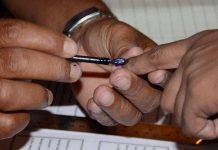Chhattisgarh hounds rape victims who dare to raise their voice
Ajit Sahi

LAST MONTH, TEHELKA published a report on how India’s apex statutory human rights watchdog, the National Human Rights Commission (NHRC), has virtually connived with the Chhattisgarh police to deny justice to that state’s poor tribal women – women who were raped by Special Police Officers (SPOs) from a tribal militia paid by the state police. Ever since these women moved a judicial court in the southern Chhattisgarh district of Dantewada two months ago, police and SPOs have been terrorising them to take back their case, forcing them to run from their ‘protectors’.
This militia, the Salwa Judum (literally: peace march), has wreaked havoc on the poor and defenseless tribals of Chhattisgarh for four years, burning entire villages, beating men and women and forcing thousands into government-sponsored and -protected camps. From these forced migrants, the state police have enrolled over a thousand people and has had them turn guns and brutalities on other tribals.
In June 2008, on orders from the Supreme Court, an allpolice team from the NHRC met several women who accused SPOs of raping them – but rejected their testimonies. Even as copies of the TEHELKA issue which carried the horrifying rape testimonies were being distributed, SPOs began swooping down on the villages of these women, threatening them openly. In one such village, Shamshetty, a dozen SPOs rode in on motorcycles, claiming they wanted to meet the women “to pay them money.”
One rape victim who lives in a village close to the border with Andhra Pradesh had the AP police arrive at her door, threatening to take her and her husband to AP – unjustifiable because she has no criminal or civil case, against her or filed by her, in AP. In a third village, the SPOs were actually accompanied by the police. They asked for the rape victim by name.
On August 2, these rape victims turned up at the makeshift office of the Vanvasi Chetna Ashram (VCA), a Gandhian NGO run by activist Himanshu Kumar, at Dantewada town. Angry over Kumar’s fearless and resolute campaign against the Salwa Judum atrocities, the police had illegally demolished his 17- year-old sprawling ashram three months ago. On August 11, Kumar took the victims to meet the city’s district magistrate (DM), IAS officer RB Kangaley. “Police goons are threatening to kill these women on Independence Day, August 15th,” he told her. Is this freedom? Is this Gandhi’s free India? Kumar says Kangaley has promised them protection. Will she succeed?
A word here about the judge hearing the rape victims’ testimonies in Konta, a sub-district of Dantewada. For the last two hearing dates – July 17 and August 12 – the judge has been “called away to headquarters”. The victims’ lawyer says they have no formal explanation why he is unable to come to court when the victims are to be heard.
‘Police goons are threatening to kill these women on August 15th, our Independence Day’
Is it just the State that is callous and brutal towards hapless, defenseless victims of rape? Or are we as a class complicit in refusing to accept these rape victims as full citizens of independent India? Nine years of pioneering journalism has made TEHELKA a household name across India, with wide acceptability overseas. Last week, one of India’s most prestigious journalism awards, instituted by the Rajasthan Patrika newspaper, was awarded to my colleague, Harinder Baweja, for her stunning exclusive reportage from the headquarters of the Lashkar-e-Taiba in Pakistan. On the other hand, India’s top media organizations – from newspapers to TV channels – have ignored the heartrending testimonies of these six women from Chhattisgarh. It is a pity that sixty-two years after India earned independence, promising justice and liberty for its sons and daughters, tribals in our forest lands find no support from India’s social and political elite in their fight for justice.









